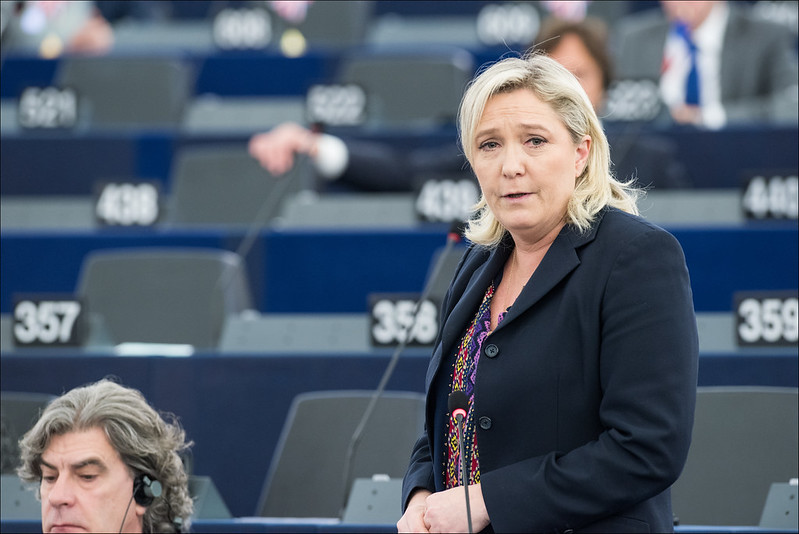On Sunday, April 24th, it was announced that Emmanuel Macron, who has already served his first term as President of France, will now enter his second five-year stretch as leader of the country. While Macron may have superficially won the French Presidential Election of 2022 , the conservative, far right party will undoubtedly pull the strings behind the face of the French Parliament.
This year, there were twelve candidates hoping to clench the highest position in parliament; three of whom can be considered far-right. Of these twelve candidates, those who trailed behind Macron in the polls in second and third place were from this far-right wing, namely ex-journalist Eric Zemmour and Marine Le Pen, daughter of the founding member of the right political party in France. Macron ended up racking up 58.2% of the votes compared to le Pen’s 41.8% which was a significantly tighter margin than the gap between the two candidates back in the 2017 election. There seems to be a rising right-leaning sentiment across France, with the police and military forces outwardly supporting this political party as well as widespread support from citizens, but why this sudden shift to conservative grassroots in France?
First and foremost it is important to recognize the views of those leading the polls this year: Marine Le Pen has been known to have extremely conservative opinions regarding immigration and ran for president two times before, promising to appoint Nicolas Dupont-Aignan as her prime minister, a man who has been condemned for denying certain details of the holocaust and whom would later run against her. Le Pen’s father, Jean Marie Le Pen has gone to trial on more than one occasion after making extremely antisemetic remarks such as “…next time, we’ll do a whole oven batch” referring to the gas chambers used to kill millions of Jewish men, women, and children during World War II. While his daughter has tried to distance herself from her father’s extremist political views and even ousted him from the party, Le Pen’s very reason for getting further in the election this year than anyone from the far-right has since 1944 is because of her anti-Islam sentiment and policies on immigration. Eric Zemmour, a former journalist and best-selling author of Jewish origin who has consistently been trailing behind Le Pen by a close margin and who is associated with the same political party has made a point of his campaign to address the problem of immigration even more inadvertently than Le Pen, managing to draw support from the general french public. Macron, on the other hand, can be considered a centrist, who at times, has been more right-leaning although tends to steer clear of discourse that associates him with either side explicitly. He has referred to the immigration crisis more indirectly and throughout his campaign, has tried to focus on less polarizing subjects such as the rising cost of living as well as climate change. However, the sentiment that immigrants are destroying the very essence of French culture rings fervently through the streets of France and as a result, the far-right holds local and regional seats across the country. Since 2014, Le Pen’s Party has held seats in both the senate and in the european parliament and a recent survey conducted during the election found that 50% of French people would not fear having Le Pen as president.
It may seem as though France has taken one step closer to preserving democracy with Macron emerging as a victorious leader, but the reality is that many conservative members of the parliament have already struck a chord that resonates with the public. With conservative plots being entertained in the backdrop of a centrist President, the stage is being set for more extremist views to manifest themselves in France, a danger that poses itself to not least of all, minority groups.

